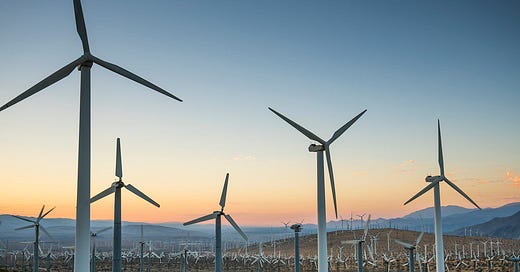what happened at COP28
On December 13th, COP28 concluded with a consequential decision about the future of the planet.
COP, or the Conference of the Parties, is the United Nations’ annual Climate Change Conference. Since 1995, hundreds of world leaders representing nations from around the globe have gathered to discuss climate issues.
Historically, COP summits have tackled divisive subjects like economic responsibility for carbon emissions and long term strategies for climate change mitigation. The goal is to foster international cooperation and prevent climate catastrophe.
There have been some wins. In 1997, the Kyoto Protocol committed industrialized countries to limit greenhouse gas emissions based on individual targets. And in 2015, the Paris Agreement legally bound 196 parties to keep global warming below 2°C. (Although the U.S. famously did not support either treaty.)
While these contracts are steps in the right direction, climate summits have been consistently criticized for failing to take decisive action.
COP28 aimed to change that, approaching the summit with four major focus points:
1) Transitioning to clean energy in order to limit warming to 1.5°C
2) Centering nature, people, lives, and livelihoods to help the most vulnerable communities
3) Delivering on finance, including honoring old promises and making funding accessible to developing nations
4) Mobilizing inclusivity; ensuring that Indigenous peoples and local communities have a say in climate solutions
After two weeks of negotiations, and with these goals in mind, COP28 parties were able to reach an agreement to transition away from fossil fuels, with a focus on increasing renewable energy and phasing out inefficient fossil fuel subsidies.
High-emission countries, like the U.S., have pledged to take the lead on curbing emissions and increasing financial accessibility to developing economies.
This contract is historic, and it will likely carry a similar impact to both the Kyoto Protocol and Paris Agreement. The UN is calling COP28 “the beginning of the end of the fossil fuel era.”
Yet there is skepticism about the efficacy of the COP28 agreement.
For one thing, it is not legally binding and there are no repercussions for failing to meet these new energy goals. Experts say that energy policy in the U.S. is unlikely to change any time soon, especially since coal, oil, and gas companies are not owned by the state.
Additionally, the agreement focuses only on the energy sector, excluding agriculture, which is arguably just as impactful for carbon emissions. In fact, none of the significant COP agreements have addressed the agricultural sector.
Without tackling the full spectrum of climate issues or imposing legal consequences for failing to meet targets, there is a very real chance that the UN goals will not be met.
This year’s summit also caused some scandal. Prior to the conference, evidence arose that the host country, the UAE, was planning on utilizing COP talks to strike oil deals with other countries, ostensibly undermining the goals COP28 aimed to achieve.
Because of this, and the long history of ineffective climate policy, some have gone so far as to call all COP summits “a farce.”
In some ways, I can’t help but agree. There is clearly extravagant wealth in the fossil fuel industry and many countries, like the U.S. and the UAE, have a vested interest in upholding our current energy economy.
It benefits these governments to have weak, ineffectual global climate policy that still makes them look like they’re making an effort.
But I try not to be too cynical.
The fact that so many countries publicly agreed to transition away from fossil fuels and toward renewable energy is a big achievement. A win is a win.
Moving forward, I hope that COP28 puts real pressure on our government to enact clean energy policies and to uphold their pledge to limit global warming.
And if COP28 isn’t enough pressure, then I hope we as people feel empowered to apply that pressure ourselves. An international deal like COP28 is an important step; let’s make sure they don’t forget it.



